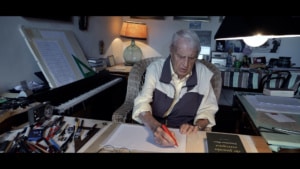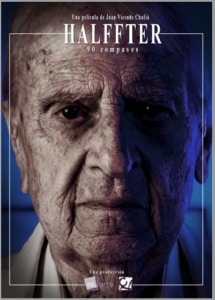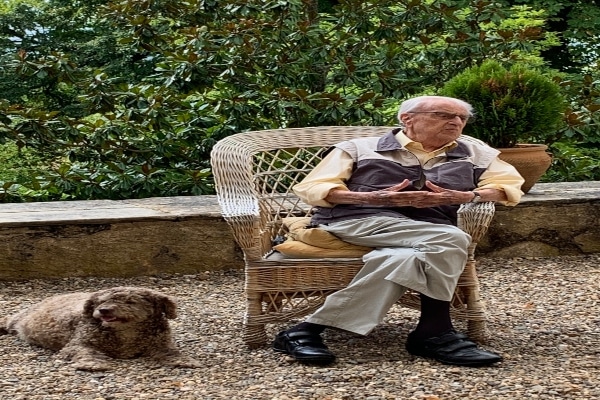Juan Vicente Chuliá’s documentary ‘Halffter, 90 compases ‘, screening in competition in the DOC . España section of the upcoming 66th edition of the Valladolid Festival, aims to become a document of undoubted historical value on this fundamental figure in contemporary Spanish culture.
 Today the leonese town of Villafranca del Bierzo prepares to say goodbye to Cristóbal Halffter, who died last Sunday at the age of 91. The composer and conductor lived there, in the family home, after the death in 2017 of his wife , the renowned pianist María Manuela Caro y Carvajal, surrounded by nature and devoted to musical composition and study.
Today the leonese town of Villafranca del Bierzo prepares to say goodbye to Cristóbal Halffter, who died last Sunday at the age of 91. The composer and conductor lived there, in the family home, after the death in 2017 of his wife , the renowned pianist María Manuela Caro y Carvajal, surrounded by nature and devoted to musical composition and study.
Cristóbal Halffter was one of the most important composers of the Generation of ’51, a group of artists who renewed the Spanish music scene with the introduction of the musical techniques of the European avant-garde, such as twelve-tone music and serialism.
In 1981 he received the Gold Medal of the Fine Arts and in 1987 the Castile and León Arts Award.
‘Halffter, 90 compases’ will be competing in the DOC.España

On Cristóbal Halffter’s 90th anniversary, a composer friend who interviewed him years ago travels to meet him and share thoughts on his art. He finds an already widowed Halffter who lives alone in a castle, but still writes scores and creates music.
Through Halffter’s own words , which are interspersed with statements by music scholars and critics, performances of his works and even filmed scenes in other countries where the historical importance of Halffter in contemporary music has become an object of worship, we witness a revealing, and also twilight-coloured account of a rigorous creator: a cultivated artist still exploring the frontiers of his work.
This documentary was produced by ES.ARTE and Juan Vicente Chuliá, director and member of the Academy of Cinematographic Arts and Sciences of Spain (AACCE). He is the coordinator of the COMA Festival of Contemporary Music and of the Madrid Association of Composers AMCC, as well as a founding member and audiovisual artist at Madrid’s EPOS Lab. His career has been linked to cultural and audiovisual journalism for more than 30 years. His previous documentaries revolve around musical creation (Temperado and El Proceso) and the last one on music and dance as creative manifestations (Danzantes).



























![Logo Foro Cultural de Austria Madrid[1]](https://www.seminci.com/wp-content/uploads/2024/09/Logo-Foro-Cultural-de-Austria-Madrid1-300x76.jpg)








